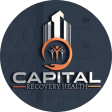Reconnecting with oneself after a period of addiction is a complex and often challenging endeavor, requiring a thoughtful approach to self-discovery and healing. It is essential to engage in reflective practices that illuminate emotional landscapes and identify triggers that may hinder progress. Establishing structured routines and exploring new interests can provide a foundation for stability and personal growth. However, the most profound transformations often occur through the connections we foster with others. As we examine the multifaceted nature of recovery, it becomes evident that the journey is not merely individual; it is deeply intertwined with the relationships we build along the way.
Understanding Your Journey
Understanding your journey through addiction is an important step toward healing and self-reconnection. Acknowledging the experiences that led you to substance use can facilitate profound self-reflection, which is essential for personal growth. This involves examining your thoughts, emotions, and behaviors that may have contributed to your addiction, allowing you to identify patterns and triggers. Engaging in self-reflection practices, such as journaling or mindfulness meditation, can provide clarity and insight into your motivations and desires. These practices help confront the past while enabling you to envision a healthier future. By understanding the underlying issues that fueled your addiction, you can begin to develop coping strategies that promote emotional resilience and foster self-compassion. For those seeking structured guidance, exploring various treatment modalities can be beneficial.
Establishing Healthy Routines
How can establishing healthy routines aid in your recovery journey? Creating a daily structure fosters stability and resilience during recovery from addiction. Healthy routines provide a sense of predictability and control, particularly comforting during emotional upheaval. By integrating mindful habits into your daily life, you can cultivate a deeper awareness of your thoughts and feelings. Starting your day with meditation or journaling can set a positive tone, helping you navigate challenges with a clearer mindset. Regular meal times, exercise, and sleep patterns are vital as they support physical health and emotional well-being. Engaging in purposeful activities like volunteering or attending support groups can fill your schedule with meaningful experiences that reinforce your commitment to recovery. To further enhance your well-being, consider incorporating tips from Nutrition.gov for maintaining balanced nutrition.
Exploring New Interests
Exploring new interests is indispensable in your recovery journey, providing a fresh perspective and sense of purpose. Engaging in creative hobbies stimulates your mind and allows self-expression, crucial in rebuilding your identity post-addiction. Whether painting, writing, or learning a musical instrument, these activities serve as therapeutic outlets, helping you process emotions and experiences. Incorporating physical activities is essential for mental and physical well-being. Activities like yoga, hiking, or joining a sports team can enhance your mood, reduce stress, and improve overall health. The endorphins released during exercise help combat anxiety and depression prevalent during recovery. Remember, the goal is personal growth and enjoyment, allowing freedom to experiment and fostering a sense of accomplishment. For those interested in holistic practices, holistic programs may offer additional support.
Building Supportive Connections
Building supportive connections is essential during recovery, as relationships with others who understand your journey greatly enhance healing. Engaging with support groups provides a safe space for sharing experiences, challenges, and victories, cultivating an atmosphere of empathy and understanding crucial for rebuilding trust. Establishing positive relationships outside of these groups is equally important. Surrounding yourself with individuals who encourage sobriety and personal growth bolsters resilience. Reconnecting with family, friends, or mentors who have supported you can offer guidance during difficult times. Consider joining community activities or workshops related to your interests to meet like-minded individuals who share similar values and goals, enriching your support network. For more structured programs, explore our program offerings that focus on holistic recovery.

Final Thoughts
Reconnecting with oneself after addiction is a profound and transformative journey. Emphasizing self-reflection, healthy routines, and the exploration of new interests fosters personal growth and stability. Building supportive connections enhances the recovery experience, providing encouragement and a sense of belonging. By embracing these steps, individuals can cultivate a renewed sense of identity and purpose, ultimately leading to a more fulfilling and balanced life post-addiction. Healing and self-discovery are attainable through commitment and perseverance. At Capital Recovery Health, we’re dedicated to helping you overcome the challenges of substance use and build a foundation for lasting strength and renewal. Our experienced team creates personalized, evidence-based treatment plans tailored to your unique recovery journey. Get the compassionate support you deserve by contacting us. Stay connected with us on Facebook for valuable insights, resources, and inspiring stories of hope.
Frequently Asked Questions
What Are the Signs That I Need Help With Addiction?
Recognizing the signs that you may need help with addiction is essential. Emotional withdrawal, such as feelings of isolation, anxiety, or depression, often indicates a deeper issue. Noticeable behavioral patterns, such as neglecting responsibilities, changes in social circles, or secretive actions, suggest a dependency. If these signs resonate with your experiences, seeking professional assistance is a vital step towards reclaiming well-being and fostering a healthier lifestyle.
How Can I Cope With Cravings After Treatment?
Coping with cravings after treatment involves implementing mindfulness techniques to stay present and aware of your urges. Establishing a robust support network can provide encouragement during challenging moments. Developing healthy habits, such as regular exercise and balanced nutrition, helps stabilize mood and reduce cravings. It’s essential to identify emotional triggers, allowing you to create effective management strategies. Prioritizing self-care and seeking professional guidance can further enhance coping mechanisms.
What Should I Do if I Relapse?
Experiencing a relapse can be disheartening, but viewing it as part of the recovery journey rather than a failure is essential. Identify relapse triggers and reflect on the circumstances that led to the setback. Implementing effective recovery strategies, such as seeking support from a counselor or attending a support group, can help reinforce your commitment to sobriety.
How Long Does Recovery Take?
The recovery timeline varies considerably among individuals, influenced by factors like the severity of addiction, personal circumstances, and commitment to the process. Early recovery typically takes several months, during which individuals encounter personal milestones providing motivation and insight. Recognize that recovery isn’t a linear journey; setbacks may occur, but each step forward represents progress. Support from professionals and peers greatly enhances this transformative experience.
Can I Still Enjoy Life Without Substances?
Absolutely, you can enjoy life without substances. Engaging in mindful practices enhances awareness and appreciation of daily experiences. Exploring healthy hobbies, like art or physical activities, provides fulfillment and joy. Building meaningful social connections fosters support and companionship, essential for emotional wellness.

